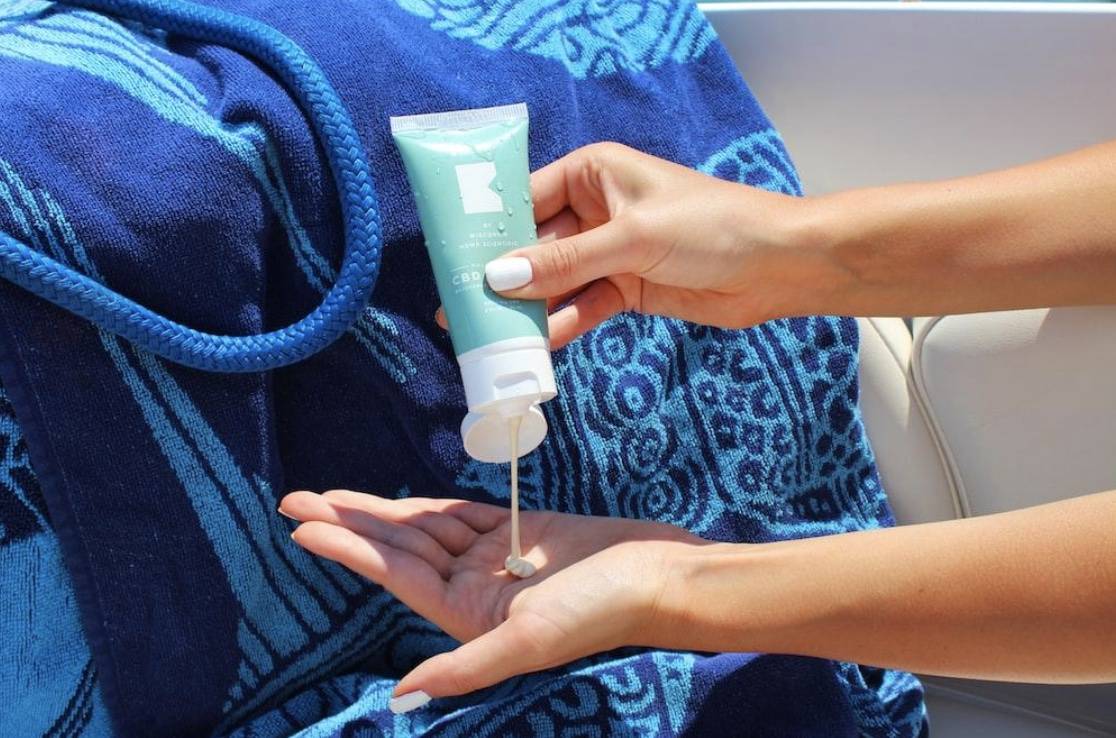How Often Should You Wear Sunscreen? Protect Your Skin This Summer

April 2023. This article is independently written by Shelby Golding. All opinions given are hers. Shelby has been certified as a personal trainer and nutritional specialist since 2007. In 2008, she found her passion for writing about these topics and hasn't looked back.

Excessive UV exposure can lead to skin diseases, and protecting your skin from harmful UV rays should be a top priority during the summer. Like it or not, wearing sunscreen is an inevitable part of a healthy skincare routine for this very reason. It helps prevent skin damage, premature aging, and, of course, skin cancer.
Should You Apply Sunscreen Every Day?
According to the Skin Cancer Foundation, everyone should wear sunscreen every day. Daily sunscreen is vital for reducing skin aging, maintaining skin health, and lowering the risk of sun damage. And yes, that means making sunscreen a part of your daily routine, even on cloudy or rainy days!
- Protection from UV radiation
- Prevention of skin cancer
- Prevention of premature aging
- Maintaining an even skin tone
- Stress is the culprit behind many types of skin problems, like acne, eczema, and psoriasis.
You'll want to choose a broad-spectrum sunscreen that provides protection against UVA and UVB rays and suits your skin type.
What to Look For When Choosing Sunscreen
Not all sunscreens are created equal, so choosing the right one for your skin is important. Here are some things to look for in sunscreen:
- SPF: Sun Protection Factor (SPF) measures how well the sunscreen protects your skin against UVB rays. A sunscreen with 30 SPF or more is ideal.
- Broad-spectrum protection: Sunscreens that offer broad-spectrum protection protect against both UVA and UVB rays.
- Water-resistant: If you plan to be active or go into the water, use a water-resistant sunscreen designed to stay on longer.
- Skin type: If you have sensitive skin, a fragrance-free, hypoallergenic sunscreen is likely best. And for those with oily skin, look for a sunscreen that is oil-free and non-comedogenic.
Understanding SPF
Sun Protection Factor (SPF) is a metric used to measure how well a sunscreen can shield your skin from harmful UVB rays. The higher the SPF number, the greater the protection against UVB rays. SPF is determined by comparing the time it takes for skin to burn with and without sunscreen. It's important to remember that SPF only measures protection against UVB rays, one of two culprits for increased skin cancer risk from sun exposure.
Therefore, selecting a broad-spectrum sunscreen that safeguards fair skin against UVA rays as well, which also causes premature aging and an increased risk of skin cancer, is crucial.
Does Makeup With SPF Work?

If you have a complete skincare routine with multiple steps, you know how confusing it is to figure out the correct order of products. So here's an order that works:
- Start with a clean face. Wash with a gentle cleanser and pat dry with a clean towel.
- Apply any serums or treatments before your moisturizer (e.g., hyaluronic or salicylic acid).
- Apply moisturizer to your face and neck. Allow it to fully absorb your skin before moving on to the next step, and make sure your skin doesn't feel oily afterward. If your skin does feel oily, blot the excess moisturizer with an oil blotting sheet (a paper towel works in a pinch).
- Apply a dime-sized dollop of sunscreen to your face and neck. Remember to use broad-spectrum sunscreen with an SPF of 30 or higher.
- Gently pat the sunscreen on your skin and allow it to absorb fully before applying makeup or going outside.
- Apply any makeup after your sunscreen has fully absorbed into your skin.
The key is allowing each product to absorb fully into your skin before moving on to the next step. This ensures that each one can do its job correctly (especially your sunscreen).
Is It Necessary to Reapply Sunscreen Every Two Hours?
Yes, it's best to reapply sunscreen every two hours if exposed to direct sun, especially outdoors or swimming/sweating. This is because sunscreen can break down over time and lose its effectiveness at protecting your skin from UV radiation.
Do You Need to Wait 15-20 Minutes After Applying Sunscreen Before Going Outdoors?
Yes, waiting at least 15 minutes after applying sunscreen before going outside is recommended to allow it to absorb into the skin. This helps ensure that the sunscreen provides maximum protection against harmful UV rays.
Do You Need Different Sunscreen for Your Face and Body?
Yes, using separate sunscreens for your face and body is usually best. Facial skin is more sensitive and prone to breakouts than the skin on the rest of the body. And facial sunscreens are formulated to be gentle and non-comedogenic to ensure ideal protection for facial skin.
Enjoy Summer More With Kailo
Protecting your skin from the sun is essential, but so is pain management! Remember to use your Kailo Pain Patch to support you this summer – it’s designed to relieve pain in seconds and scientists theorize that it works by interfering with your body's electrical system (no painkillers needed!). In fact, a recent clinical study showed that showed that 97% of users were extremely satisfied with Kailo over oral medication.
Disclaimer: Kailo should not be used if you have a pacemaker or are pregnant. Always consult your doctor or health care professional before using Kailo.
Disclaimer: Kailo should not be used if you have a pacemaker or are pregnant. Always consult your doctor or health care professional before using Kailo.






